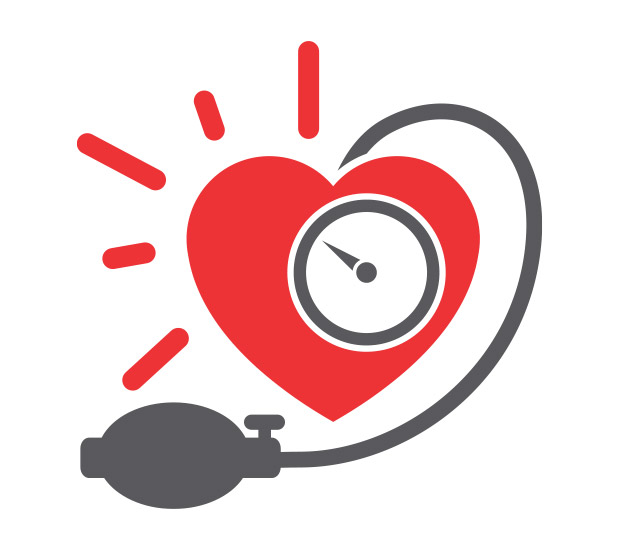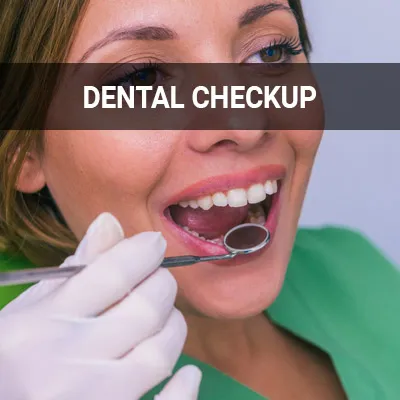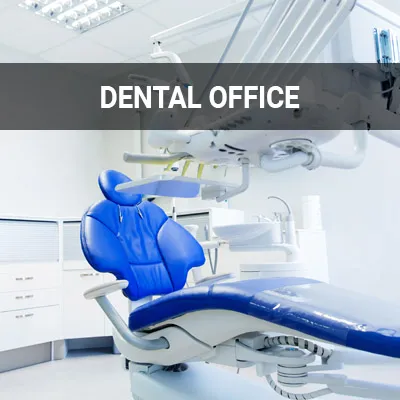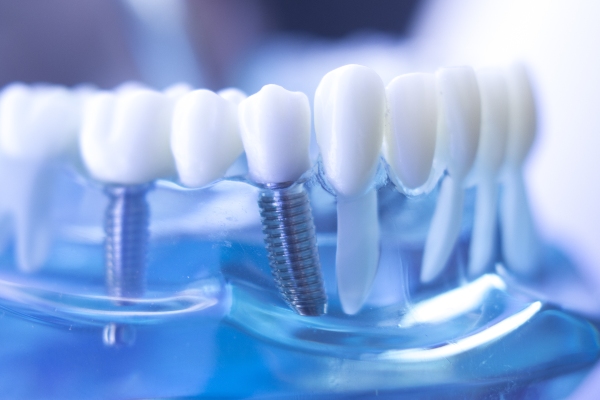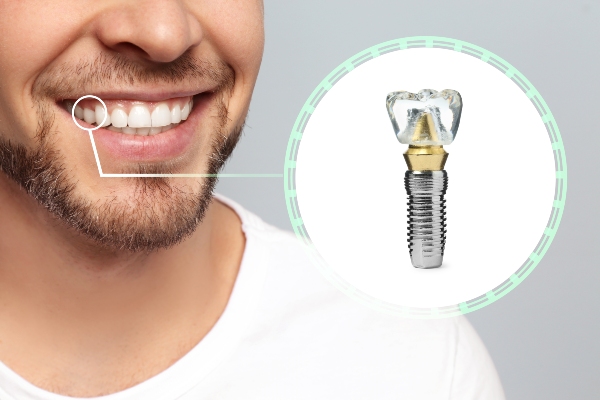Dental Office Blood Pressure Screening Las Vegas, NV
A dental office blood pressure screening helps the dental team keep a close watch on your heart health. During a dental procedure, some patients may experience a sudden spike in blood pressure. Without treatment, abnormal blood pressure can put your health at risk.
Blood pressure testing is available at Hybrid Dental in Las Vegas and the surrounding area. Our team considers every aspect of your health to develop a personalized treatment plan. We offer our patients well-rounded dental care. Call us at (702) 628-5807 to learn more.
Low Blood Pressure
Blood pressure refers to the pressure of the blood pumping through the arteries produced by contractions of the heart. According to the Mayo Clinic, low blood pressure, or hypotension, occurs when the brain does not receive enough blood. It is usually caused by an underlying disease, medications being taken, pregnancy, an infection, or lack of nutrition. Common symptoms of low blood pressure are dizziness, fatigue, nausea, fainting, dehydration, blurred vision, pale skin, and mild depression.
In most cases, screening results revealing low blood pressure do not affect many dental procedures. In the case of significantly low screenings, we may ask the patient to drink water and a sweet beverage or fruit to raise their blood pressure or reschedule for another visit. Low blood pressure is only alarming if a patient is experiencing dizziness or fatigue as local anesthesia and drilling can add too much stress and lead to variable results.
“Low blood pressure occurs when the brain does not receive enough blood.”
Understanding Blood Pressure Measurements
Most adults should have blood pressure readings between 90/60 and 120/80. If a patient's readings are too low, they may be diagnosed with hypotension. This condition can cause a variety of symptoms, including:
- Blurred vision
- Cool or clammy skin
- Dizziness
- Fainting
- Nausea
If the patient's readings are too high, they may have hypertension. Patients with hypertension often report:
- Dizziness
- Chest pain
- Headaches
- Shortness of breath
- Vision changes
Keep in mind that abnormal blood pressure does not always cause noticeable symptoms. Many patients are unaware that they have high or low blood pressure. Without treatment, these conditions can cause permanent organ damage.
Routine screenings, like those provided by a dentist, help patients detect blood pressure disorders. The sooner patients receive treatment, the better their outcomes. Treatment can improve their oral health and protect their hearts.
“Keep in mind that abnormal blood pressure does not always cause noticeable symptoms.”
Meaning Behind Results
A blood pressure screening reveals two numbers that result from two forces: the first force (systolic pressure) and the second force (diastolic pressure). The American Heart Association explains, "The first force occurs as blood pumps out of the heart and into the arteries that are part of the circulatory system. The second force is created as the heart rests between heartbeats." A normal blood pressure reading is between 120/80 mm Hg, systolic over diastolic. High blood pressure refers to a systolic number higher than 120 and the diastolic number higher than 80. Low blood pressure readings are 90/60 mm Hg and lower.
A complete health dentist takes into account the patient's medical history, prior treatments and surgeries, underlying health conditions, and current blood pressure readings to customize their dental treatment plan. This may mean referring the patient to a primary health care provider that can better help them manage their blood pressure or send them to a hospital for further scans and treatment. We take all necessary precautions to ensure every patient is safe and all dental treatments enhance their well-being without putting them at risk.
“A normal blood pressure reading is between 120/80 mm Hg, systolic over diastolic.”
Check out what others are saying about our dental services on Yelp: Dental Office Blood Pressure Screening in Las Vegas, NV
How Blood Pressure Affects Dental Care
In rare cases, a patient may enter the dentist's office with dangerously high or low blood pressure. If this occurs, the dental team can arrange for the patient to visit the hospital emergency room. The team can also decide whether to move forward with certain types of treatment.
Patients with abnormal blood pressure readings may get disqualified from certain dental procedures. In particular, anesthetics can create a spike in blood pressure. Some patients might also experience sudden drops in blood pressure after a procedure if they have been taking antihypertensive medication.
Our dental team provides constant monitoring when administering medications. We check the patient's blood pressure before and after treatment. Before discharging the patient, we make sure that their blood pressure is stable. Patient safety is our highest priority.
“Patients with abnormal blood pressure readings may get disqualified from certain dental procedures.”
Questions Answered on This Page
Q. What is low blood pressure and how can it limit dental treatment?
Q. What do the numbers on a blood test reading mean?
Q. What are the risks of abnormal blood pressure?
Q. Does high or low blood pressure disqualify me from treatment?
People Also Ask
Q. Are oral conditions primarily habitual or genetic?
Q. How can a cracked or broken tooth affect other body systems?
Dentist Referrals
Patients with an above or below-average blood pressure readings are often referred to a cardiologist or other specialist that can better manage their case. Prior to complete health dentistry, many complications and accidents occurred due to the lack of knowledge behind dental treatment effects on blood pressure. Referrals do not indicate a lack of interest or comfort in treating a case but rather the interest we hold in ensuring all patients receive the proper care they need for overall health.
In most cases, the referred medical specialist has extended experience providing care to patients of their specialty. For example, a cardiologist is trained specifically in treating the heart and blood vessels, providing the necessary tools to treat patients with high or low blood pressure. A psychologist or mental health professional can help patients with stress reduction to naturally manage their blood pressure. In turn, specialists can refer a patient to a dentist for oral conditions affecting their general health or refer them back to their dental specialist after going through the proper treatment.
“Prior to complete health dentistry, many complications and accidents occurred due to the lack of knowledge behind dental treatment effects on blood pressure.”
Frequently Asked Questions About Blood Pressure Screenings
Q. What is a normal result during a blood pressure test?
A. Normal blood pressure readings can vary. As a rule, most adults should keep their blood pressure between 90/60 and 120/80. Some patients may have consistently abnormal readings due to a chronic health condition. A doctor can let you know what readings are normal for you.
Q. What happens if my blood pressure test results are abnormal?
A. Blood pressure can fluctuate. Patients may have low or high readings due to stress. Physical activities and medication can also affect blood pressure. If your readings are abnormal, the dentist may check your blood pressure several times. They may also refer you to a doctor for further care.
Q. What are the health risks of high blood pressure?
A. Without treatment, high blood pressure can lead to organ failure and stroke. People with uncontrolled high blood pressure are also at a higher risk for dementia. Sadly, high blood pressure often goes undetected for years. Routine blood pressure screenings can help diagnose this condition in its early stages.
Q. How is high blood pressure treated?
A. Patients with high blood pressure test results may need to take daily medication. Some patients may also need to adjust their lifestyles. Dietary changes, weight loss, and smoking cessation can help lower blood pressure. Our dental team can help patients access treatment for their high blood pressure.
Q. Does dental anesthetic affect blood pressure?
A. Anesthetics may cause a temporary spike in blood pressure. Patients who receive these medications need constant monitoring. Our dental team may perform a blood pressure screening several times during treatment involving an anesthetic. If your blood pressure spikes, we can provide on-the-spot care.
Dental Terminology
Learn More Today
If you are interested in better understanding complete health dentistry and how blood pressure affects many dental treatments, call us at 702-628-5807 to set up an appointment or ask us during your next visit.
Helpful Related Links
- American Dental Association (ADA). Glossary of Dental Clinical Terms. 2024
About our business and website security
- Hybrid Dental was established in 2012.
- We accept the following payment methods: American Express, Cash, Check, Discover, MasterCard, and Visa
- We serve patients from the following counties: Clark County and Nye County
- We serve patients from the following cities: Las Vegas, Summerlin, North Las Vegas, Spring Valley, Paradise, Henderson, Centennial Hills, Mt Charleston, Enterprise and Pahrump
- National Provider Identifier Database (1306143847). View NPI Registry Information
- Healthgrades. View Background Information and Reviews
- Norton Safe Web. View Details
- Trend Micro Site Safety Center. View Details
Back to top of Dental Office Blood Pressure Screening
